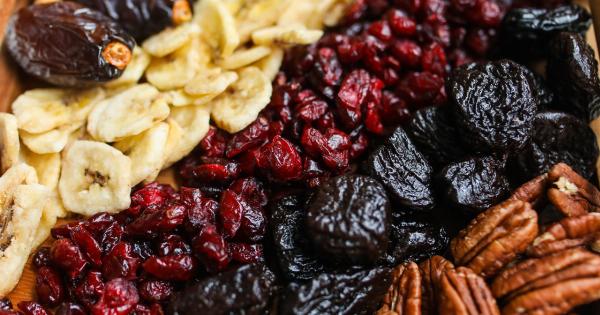B vitamins are a group of essential vitamins that play an important role in various bodily functions. They are water-soluble and cannot be stored in the body, which means that we need to get them from our diet or supplements on a daily basis.
In this article, we will discuss everything you need to know about B vitamins and what foods to eat to ensure you are getting enough of these essential nutrients.
What are B Vitamins?
B vitamins are a group of vitamins that include thiamin (B1), riboflavin (B2), niacin (B3), pantothenic acid (B5), pyridoxine (B6), biotin (B7), folate (B9), and cobalamin (B12).
These vitamins are essential for many bodily functions, including energy production, metabolism, immune system function, and the formation of red blood cells.
Why are B Vitamins Important?
B vitamins are essential for many bodily functions, including:.
- Energy production: B vitamins play a key role in converting food into energy.
- Metabolism: They are involved in the metabolism of fats, proteins, and carbohydrates.
- Brain function: B vitamins are important for brain function and development.
- Red blood cell production: They are needed for the production of red blood cells, which carry oxygen throughout the body.
- Immune system function: B vitamins are important for a healthy immune system.
- Nerve function: They are essential for proper nerve function.
What Foods are High in B Vitamins?
Many foods are high in B vitamins, including:.
- Thiamin (B1): Whole grains, pork, nuts, beans, and peas.
- Riboflavin (B2): Dairy products, whole grains, leafy green vegetables.
- Niacin (B3): Meat, fish, poultry, whole grains.
- Pantothenic acid (B5): Meat, poultry, fish, whole grains, mushrooms.
- Pyridoxine (B6): Meat, fish, poultry, beans, nuts, whole grains.
- Biotin (B7): Egg yolks, liver, nuts, whole grains.
- Folate (B9): Leafy green vegetables, beans, peas, citrus fruits.
- Cobalamin (B12): Meat, fish, poultry, dairy products.
What are the Symptoms of B Vitamin Deficiency?
B vitamin deficiency can cause a wide range of symptoms, including:.
- Fatigue and weakness
- Irritability and depression
- Numbness or tingling in the hands and feet
- Muscle weakness
- Poor immune function
- Anemia
- Digestive problems
- Confusion or memory problems
Who is at Risk of B Vitamin Deficiency?
Some people are at a higher risk of B vitamin deficiency, including:.
- Vegans and vegetarians: Because many B vitamins are found in meat, vegans and vegetarians may be at a higher risk of deficiency.
- People with digestive problems: People with digestive problems, such as Crohn’s disease or celiac disease, may have difficulty absorbing B vitamins.
- People who drink alcohol: Alcohol can interfere with the absorption of B vitamins.
- Pregnant and breastfeeding women: Pregnant and breastfeeding women need higher amounts of B vitamins.
Do I Need to Take B Vitamin Supplements?
If you eat a healthy and balanced diet, you should be able to get enough B vitamins from your food. However, some people may need to take B vitamin supplements, such as:.
- Vegans and vegetarians: These groups may benefit from taking a B12 supplement.
- Pregnant and breastfeeding women: These groups may benefit from taking a folate supplement.
- People with digestive problems: These people may benefit from taking a B vitamin supplement.
The Bottom Line
B vitamins are essential for many bodily functions, including energy production, metabolism, immune system function, and the formation of red blood cells. They can be found in many foods, including whole grains, meat, fish, poultry, nuts, and beans.
If you eat a healthy and balanced diet, you should be able to get enough B vitamins from your food. However, some people may need to take B vitamin supplements.































